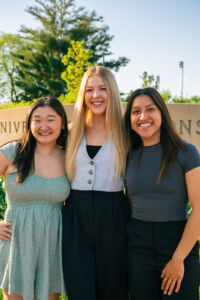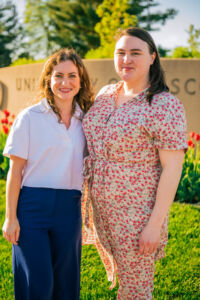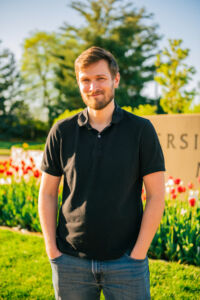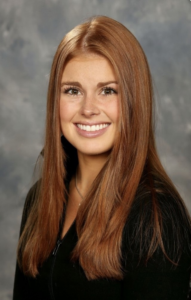ABOUT THE LAB
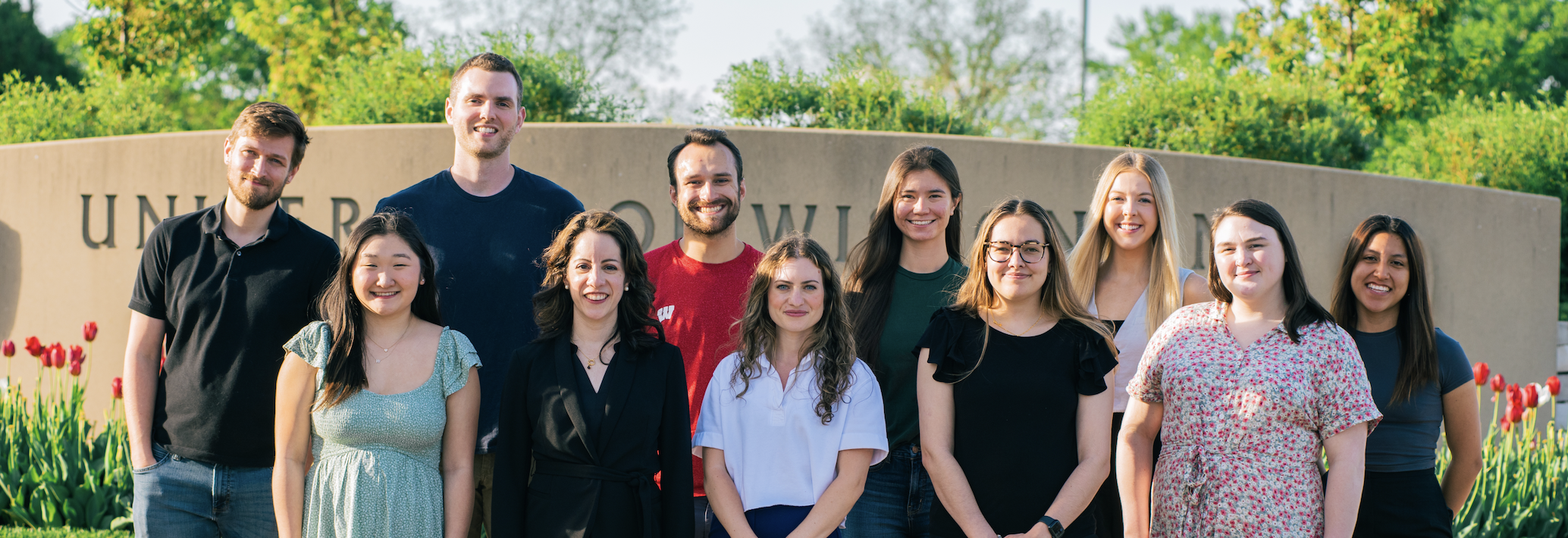
Our laboratory’s primary focus lies in investigating the long-term cognitive development of children, particularly those with early neurological histories or perinatal brain injuries, as well as children with cerebral palsy. We aim to identify imaging, neurophysiological, and behavioral markers that can predict executive dysfunction and cognitive disability in these at-risk populations. Ongoing projects also seek to understand the natural history of cognitive development through validated assessments, with the goal of comprehensively mapping the trajectory of executive function in affected children over time.
Utilizing this data, we tailor interventions to mitigate cognitive impairment in children with early neurological histories or perinatal brain injuries, who often face challenges in academic achievement and school engagement throughout their lives. One of our transformative initiatives is the adaptation of the Abecedarian Approach into the Virtual A2 Intervention, aimed to make cognitive rehabilitation more accessible to all children.
Our upcoming research objectives include not only the development of this virtual intervention, but also the collection of preliminary feasibility data to assess its effectiveness and to understand the needs of patient families in engaging in scientific research in a way that respects their values and goals
In sum, we are a dynamic and forward-thinking lab committed to making health options accessible to all, ensuring that every child has the opportunity to reach their full cognitive and academic potential. Through our innovative research endeavors, we strive to remove barriers, expand access, and create meaningful opportunities for all children and families navigating neurodevelopmental challenges.
PART OF A LARGER COMMUNITY

The Neonatal Neurology Program at the University of Wisconsin School of Medicine and Public Health is committed to providing the highest quality of care among newborns with neurological disorders. Our providers offer comprehensive and family-centered care, with a focus on neuroprotection. Team members are involved in a wide range of clinical and translational research projects that seek to optimize long-term neurodevelopmental outcomes among these high-risk infants. Our program offers ample opportunities for trainees: medical students, residents and fellows across a wide variety of specialty fields are welcome to gain expertise with our team, with the ultimate goal to become the next generation of leaders in the field.
RESEARCH PROJECTS

Biomarkers Study
The study will identify early predictors of long-term cognitive disability among at-risk children. Methods include use of MRI, EEG, and behavioral/cognitive assessments to meet study goals.

Language and Brain Development
This study aims to understand the early brain markers associated with optimized language development in the first 12 months of life.

Outreach
The project aims to use evidence-based protocols to improve access to best-medical practices for treating newborns with neurological disorders.
Our Measures
EEG

Electroencephalography (EEG) is a non-invasive test that detects electrical activity in your child’s brain using small, metal discs (electrodes) attached to a hat that your child will be asked to wear. Because you and your child’s brain cells communicate via electrical impulses and are active all the time, this activity shows up as brain waves on an EEG recording! Your child’s brain activity will be assessed using EEG while your child is playing and cuddling with you.
Play-based Assessments

Another way to test what children know is by having them play different games that require for them to think, plan and focus. We will play several games with your child, to learn how children develop attentional and memory abilities.
TEAM
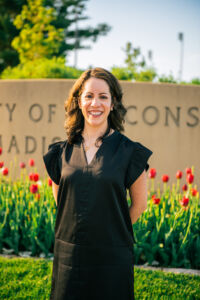 Principal Investigator: Melisa Carrasco McCaul, MD, PhDI am a pediatric neurologist with specialty training in Neonatal Neurology (Johns Hopkins Hospital, 2019-2020) and Pediatric Epilepsy (University of Michigan, 2020-2021). I am also currently an Assistant Professor and Director of Neonatal Neurocritical Care and Rehabilitation at the University of Wisconsin. My research focuses on the long-term executive function and cognitive development of children, following a perinatal brain injury and acute symptomatic neonatal seizures. | 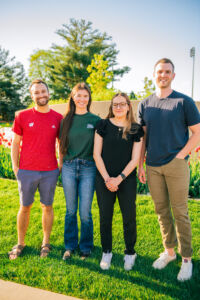 Medical Students:The lab is open to medical student trainees who share our enthusiasm for research and who are interested in making a meaningful impact in the field of cognitive development. Students can collaborate on laboratory and/or community-partnered research aimed at understanding: a) the natural history of executive function development in children with perinatal brain injuries, or b) improving access to an early cognitive intervention for infants at risk for cerebral palsy. Summer and year-round research opportunities provide a unique chance to engage in hands-on research activities, gain valuable experience in patient engagement, and contribute to groundbreaking work that has the potential to positively impact the lives of children with neurological histories. Projects hold significant appeal for medical students contemplating careers in Pediatrics, Child Neurology, Child Psychiatry, or Developmental Pediatrics. | 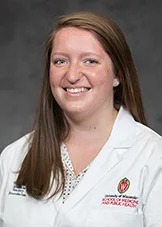 Jacky Dickman: Senior Medical Student Research FellowJacky is a fourth-year medical student in the Wisconsin Academy for Rural Medicine (WARM) program. Her passion for rural healthcare was first fueled by her experience as a first responder in a rural area and her residence in that same community. As a lab member, Jacky has been highly engaged in addressing disparities in equitable access to healthcare resources and expert care through her research. |
Alumni
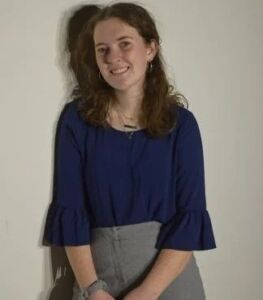 Maeve RyanMaeve Ryan will be graduating from the University of Wisconsin-Madison in 2024 and plans to pursue a career in education. |  Naba RaoNaba Rao graduated from the University of Wisconsin-Madison in 2023 and is taking a gap year in anticipation of pursuing a career in medicine. |
CONTACT
- Clinical Science Center at the UW University Hospital, 600 Highland Ave, Madison, WI 53705
- Room K4/358A and B
Lab News
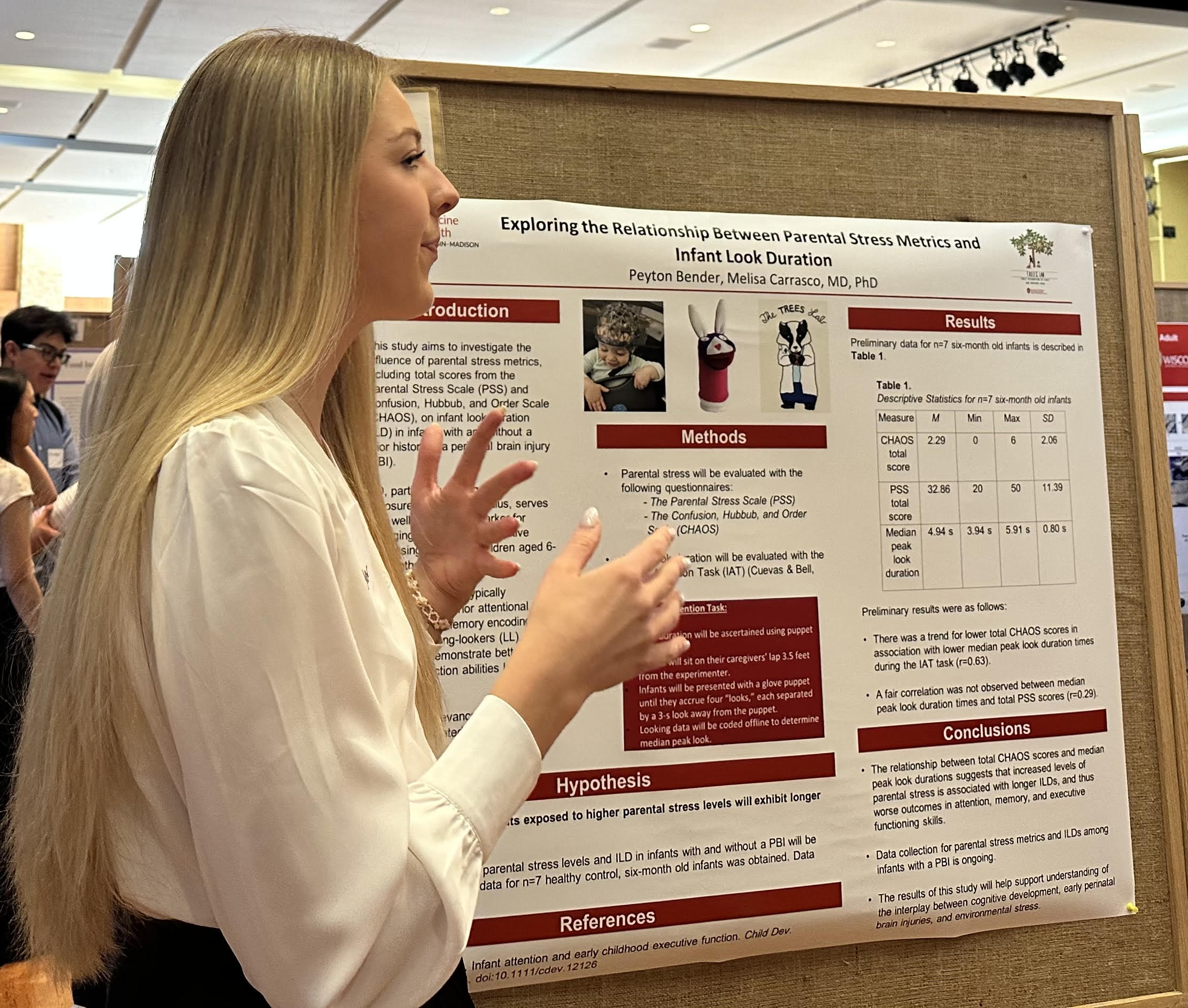 |  |
Undergraduate research assistants Peyton Bender and Ashley Chen were invited to participate at the University of Wisconsin Undergraduate Symposium 2024, as was Andrea Mendez (not pictured here).

Olivia Gibbs was invited to present her data as part of this year’s University of Wisconsin Undergraduate Symposium and did a terrific job during the posterior presentation.

